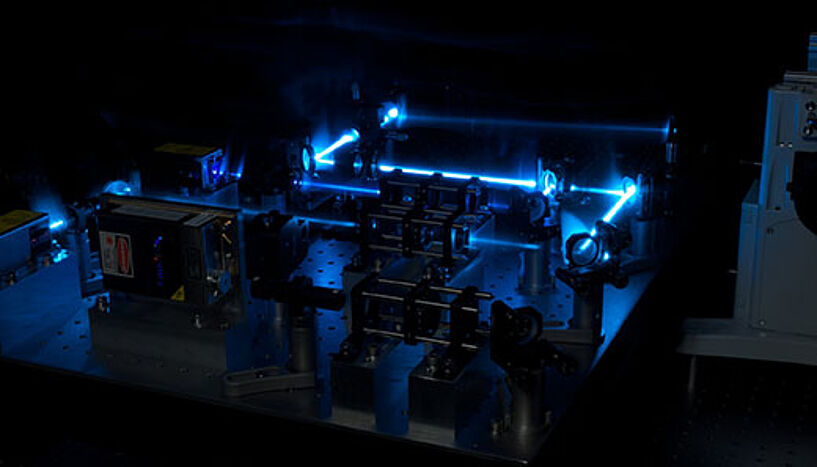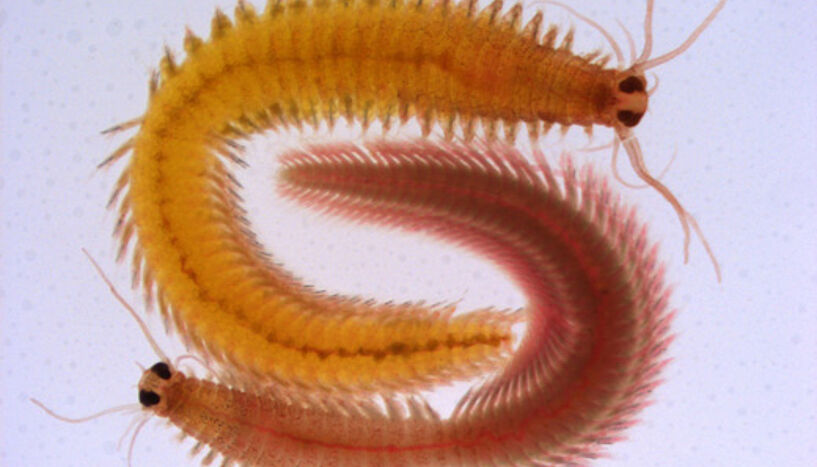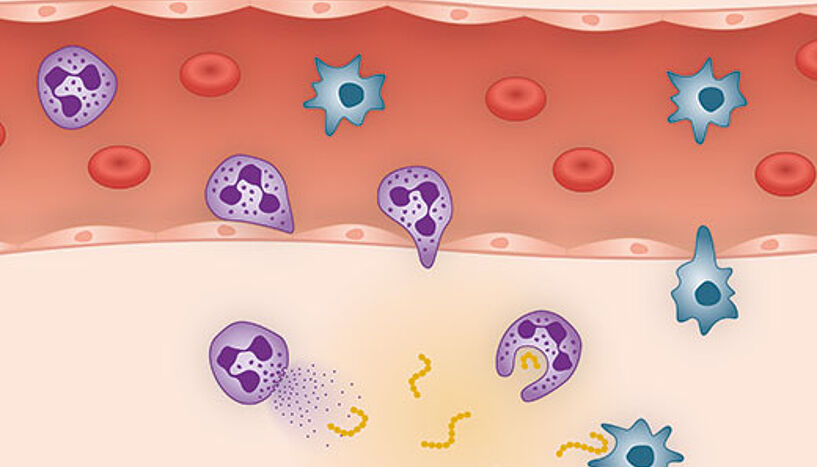How the chip comes off the old block
| 18. Dezember 2013"Alike as two peas in a pod" does not hold true for cells: Their genome is a mix of the two parental genomes resulting after meiosis. Within a unique doctoral program at the University of Vienna, 17 international PhD students investigate nuclear division and chromosome dynamics.
Jasmin Bassler is one of 17 PhD students who successfully completed the extremely demanding three-stage application process for the PhD program "Chromosome Dynamics" and who prevailed against competitors from all over the world. "The doctoral program brings students with different scientific backgrounds to the University of Vienna. Together they explore basic mechanisms of chromosome dynamics from different perspectives and expand the existing knowledge", says the young Viennese plant geneticist.
Since September 2012, Jasmin Bassler and her 16 colleagues are working and studying at the Max F. Perutz Laboratories – supported by twelve established scientists of the University of Vienna, the Institute of Molecular Biotechnology (IMBA) and the Gregor Mendel Institute of Molecular Plant Biology (GMI). "The internationally renowned doctoral program attracts excellent people to come to Vienna and strengthens the position of the University of Vienna worldwide", says the spokesman of the doctoral program (DP), Peter Schlögelhofer from the Department of Chromosome Biology.
Renowned mentors
"Each student is supervised by a scientist who helps with the practical and theoretical work. Additionally, each year the scientific committee gives feedback and evaluates the work of the young scientists", Peter Schlögelhofer points out. Is the research project reasonable and feasible or is it too risky? Is it advancing the career within the margins of the doctoral program? "The program ensures and promotes that the young scientists are on the right track", Schlögelhofer explains. "It also adds value to our department – after all, internationally renowned scientists are involved in the individual projects."
|
|---|
Science and education
The doctoral program as a specialized training in the field of chromosome dynamics complements the special research program with the same name at the University of Vienna, which is funded by the Austrian Science Fund (FWF). "The thematic overlaps between science and education create new synergies", Schlögelhofer says gladly.
"There is a lot of exchange and there are many contact persons here at the Campus Vienna Biocenter, providing the students with quick and non-bureaucratic support", adds the manager of the DP Marie-Therese Kurzbauer. She also helps the students with issues such as obtaining the necessary visas or filing their tax settlement. "It’s really exciting to work with students that come from so many different countries." Kurzbauer compares the community spirit of the DP with that of a school class where you also spend time with the others when you have time off or get to know the others better over a drink in the pub.
 | I investigate the impact of heat stress on the organization and dynamics of plant DNA in the nucleus. The DNA in the nucleus is tightly packed, but only the genes in ‘loosely’ packed regions are accessible to be read and become active. This type of regulation is called ‘epigenetic regulation’ and it allows to control gene activity without altering the actual DNA sequence, therefore enabling organisms to adapt to changing environmental conditions", explains PhD student Jasmin Bassler her research topic. |
|---|
Focus on chromosome biology
As the DP program manager also helps the young scientists to deal with issues of everyday live, they can focus on their research. One major research topic is meiosis – a particular form of cell division – in different model organisms. Meiosis is a process in reproductive cells – egg and sperm cells in humans, pollen and embryo sacs in plants – during which the parental genomes are mixed, ensuring that each partner passes its genes to the next generation. During this process, the chromosomes move within the nucleus, and parts of them also break to allow switching with parts of other chromosomes. Finally, this ensures that each sperm and each egg cell has a unique genomic setup.
Other research within the DP investigates how chromosomes are organized and formed, how the translation of their encoded information is controlled, how their equal distribution between the daughter cells is ensured and how the DNA – the molecule that incorporates the genetic information – is repaired during different stages of the cell cycle. "Hence, our research topics include DNA repair, chromosome distribution, the role of chromosome ends and epigenetics. So essentially we want to understand how chromosomes are overall regulated", says Peter Schlögelhofer.
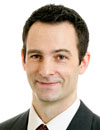 |
|
|---|
Hard and soft skills
The main objectives of the DP are to understand basic biological processes and to train young scientists the methods to do so. Which technique can be applied and how can the technique be adopted to another area? "We are providing the students with a broad range of knowledge, amongst others through workshops and lectures", explains Schlögelhofer. The DP is characterized by an ambitious framework program. Students get the opportunity to attend workshops on data presentation, scientific English as well as ethics: What can be examined and what are the ethical limits? "Our career workshops train the students in skills besides ‘hardcore science’", explains Schlögelhofer and adds with a smile: "They should know all possibilities that are out there – of course we hope that they will stay in science." (Text: Petra Schiefer/Übersetzung: Ulrike Keller)
 | The international PhD students of the FWF doctoral program "Chromosome Dynamics" are working and studying at the Max F. Perutz Laboratories. |
|---|
The FWF doctoral program "Chromosome Dynamics" started in March 2012 and is set to run for four years. Besides the spokesman, Assoc. Prof. Dr. Peter Schlögelhofer from the Department of Chromosome Biology, the faculty of the DP consists of eleven scientists working at the Max F. Perutz Laboratories of the University of Vienna, at the Institute of Molecular Biotechnology (IMBA) and the Gregor Mendel Institute of Molecular Plant Biology (GMI), together supervising 17 PhD students.

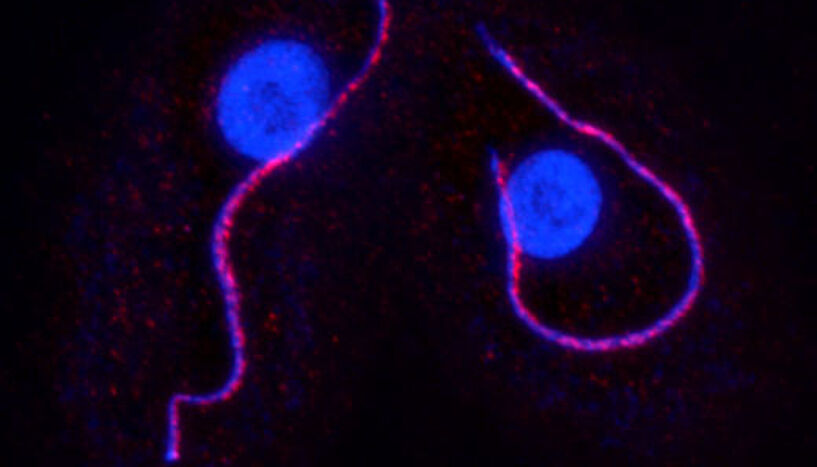
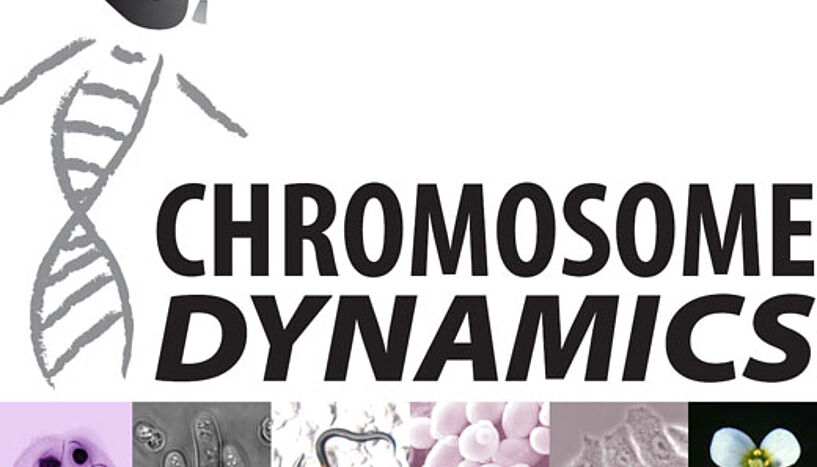
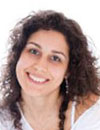 "The main topic of my research is regulation of gene expression, for me one of the most interesting topics in the field of biology. To understand how the expression of genes is regulated is to understand how organisms work. This means to understand the deepest secret of nature! To be part of the doctoral program gives me a lot of advantages, such as the participation in the recent workshop on advanced light microscopy, where I had the possibility to talk with experts in the field. Moreover, I got to know all the other students involved in the program, coming from many different countries, with whom I can socialize and exchange points of view also in a less official environment", says the Italian PhD student Jessica Ferrari about her participation in the DP Chromosome Dynamics.
"The main topic of my research is regulation of gene expression, for me one of the most interesting topics in the field of biology. To understand how the expression of genes is regulated is to understand how organisms work. This means to understand the deepest secret of nature! To be part of the doctoral program gives me a lot of advantages, such as the participation in the recent workshop on advanced light microscopy, where I had the possibility to talk with experts in the field. Moreover, I got to know all the other students involved in the program, coming from many different countries, with whom I can socialize and exchange points of view also in a less official environment", says the Italian PhD student Jessica Ferrari about her participation in the DP Chromosome Dynamics.